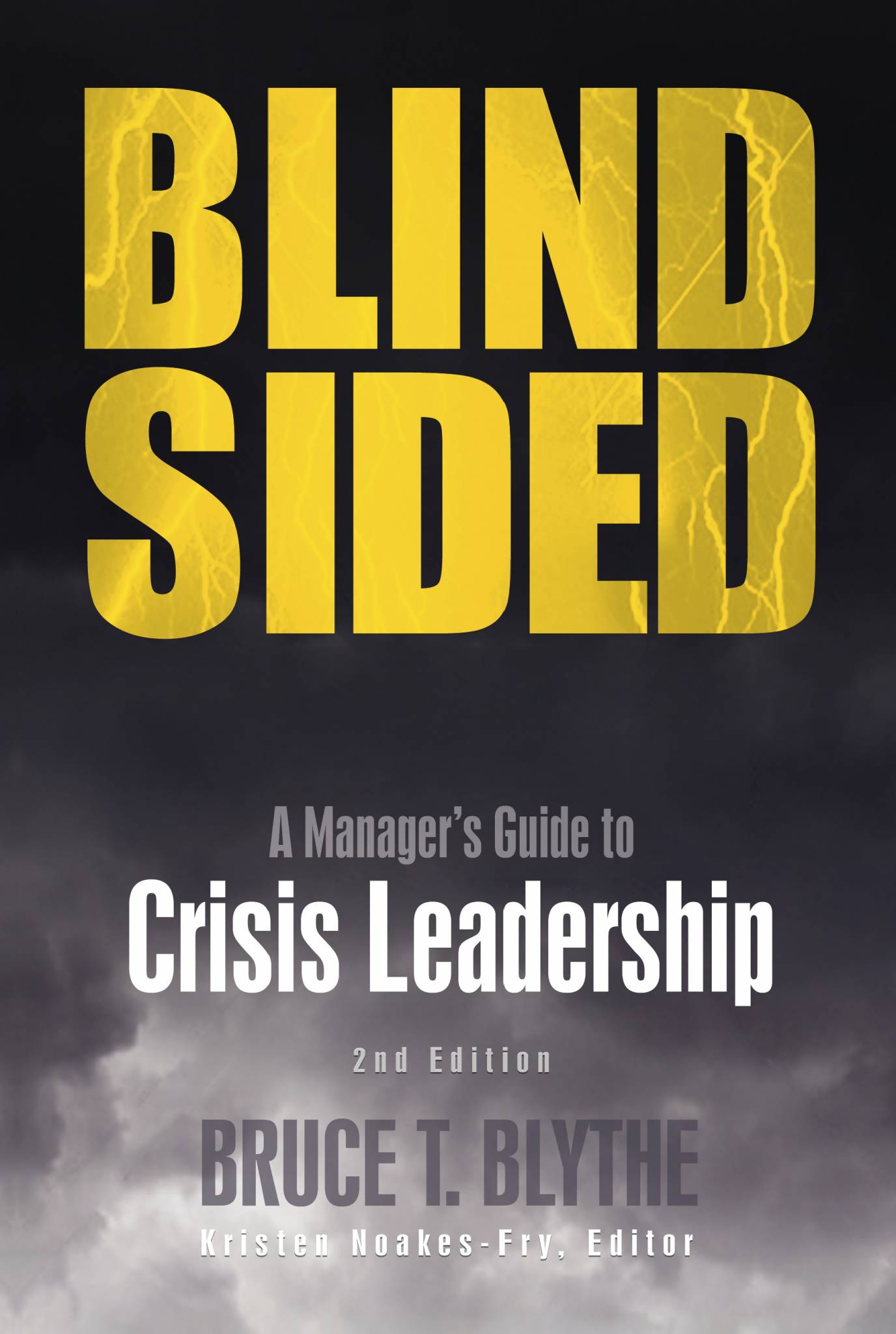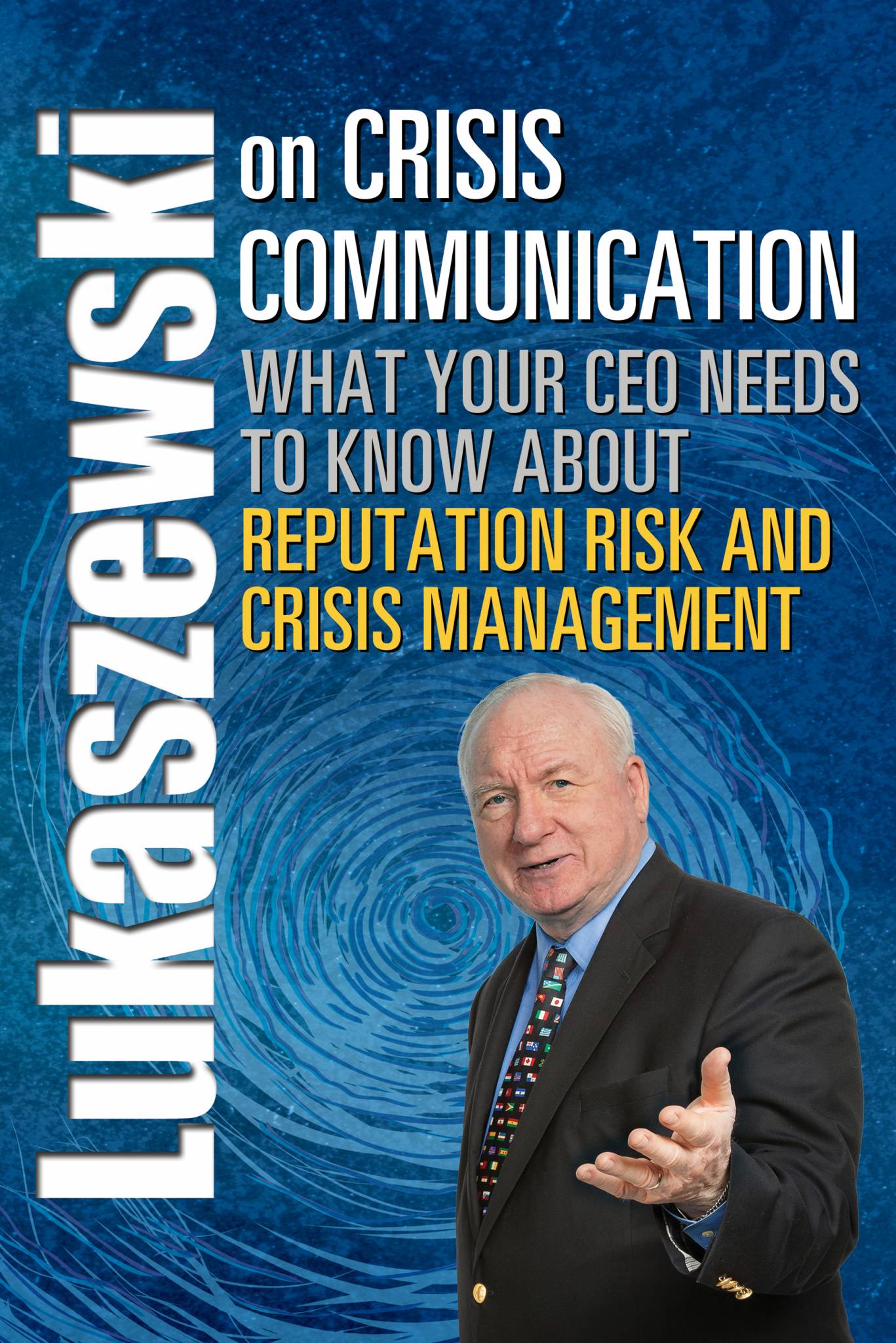A crisis strikes out of the blue, at the time and place least expected. In a word, you’re
Blindsided! According to Bruce T. Blythe, managing a crisis is an ultimate test of leadership, requiring leaders who inspire loyalty and trust as they rise to the occasion to meet the needs of people. Blythe shows you what it takes to be an effective and humane strategic crisis leader, a “crisis whisperer.”
While other books
talk about crisis leadership, this one lands
you in the middle of a fast-breaking crisis and demonstrates what a top-notch leader, a “crisis whisperer,” would say and do at every twist and turn. Blythe pulls up a chair and coaches you with real-world examples of what has worked — and not worked — in 30 years of experience with hundreds of companies just like yours. Some books tell you how to create a crisis response plan. Others tell you how to cope with the crisis as it takes place. Blythe does
both.





 Corporate Responsibility (CR) Magazine, in conjunction with Alexander Mann Solutions, announced the findings of the publication’s annual corporate reputation survey, which found that when making decisions about their future employment, the majority of Americans (71 percent) want to work for a company whose CEO is actively involved in corporate responsibility and/or environmental issues.
Corporate Responsibility (CR) Magazine, in conjunction with Alexander Mann Solutions, announced the findings of the publication’s annual corporate reputation survey, which found that when making decisions about their future employment, the majority of Americans (71 percent) want to work for a company whose CEO is actively involved in corporate responsibility and/or environmental issues.